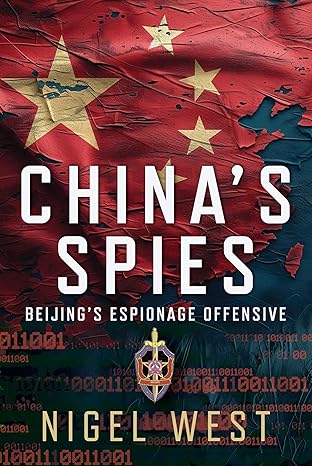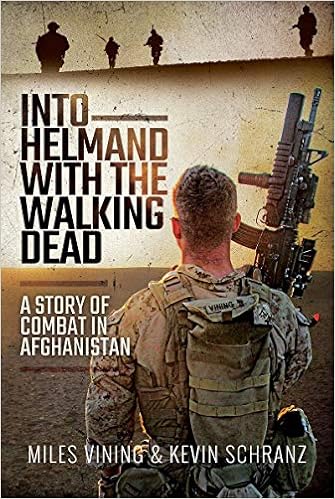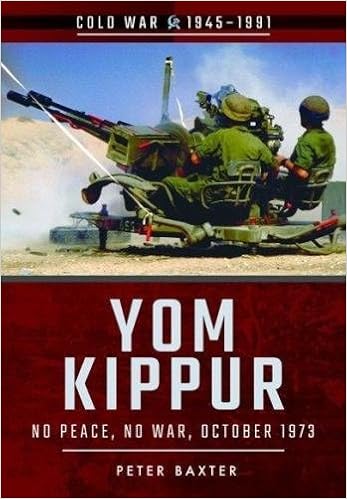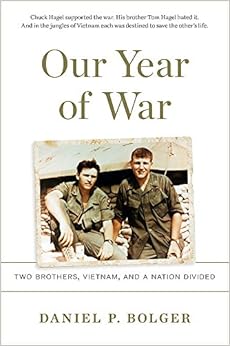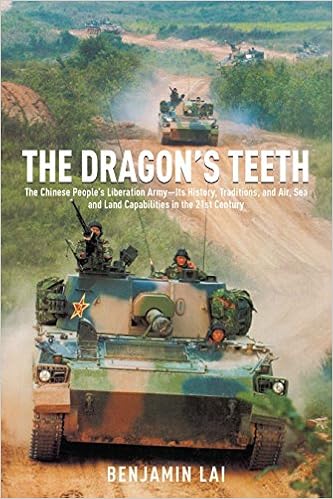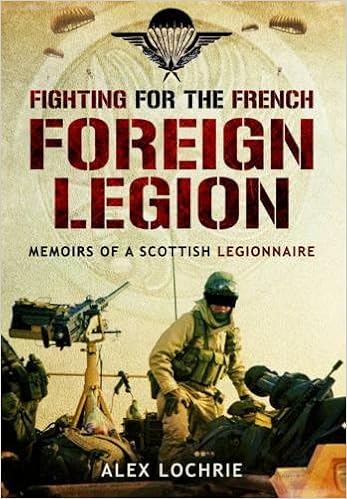Failures of Democracy Led to the Rise of Communism during the Spanish Civil War
By Robert C. Daniels
On the surface the 1936-1939 Spanish Civil War was a civil war fought between the rebel Nationalist forces and those of the Republic. However, any serious study of the war itself will reveal that it was not just a simple civil war, but a convoluted and complex war that was indeed a prelude of the World War that was soon to come. Both sides of the civil war were made up of complicated political factions, all with their separate agendas. Both sides were also supported, although in differing degrees, by various outside entities and nations.
The Nationalists had the overt support of Adolf Hitler’s Nazi Germany and Benito Mussolini’s Fascist Italy, while other European countries, and even the United States, gave covert support by giving a blind eye as many European and American based companies sold the Nationalists fuel, vehicles, and other needed materials. On the other hand, with the exception of Mexico and Russia, the outside world openly shunned the Republic.
Although communist parties did exist in Spain at the outbreak of the Spanish Civil war, they were relatively small in size and wielded varied amounts of influence. Once the war began, however, communism spread throughout the Republic held territories both in size and influence to the point where the communist party eventually held more sway than the Republic government. This essay will explore how the lack of support for the Spanish Republic by the world’s leading democratic nations directly led to the rapid growth of communism in 1936-1939 Spain.
At the outbreak of the war, while some factional differences existed among the Nationalists, Generalissimo Francisco Franco was able to control these differences and aptly organize and control the Nationalist army and militias almost from the beginning. Franco and his fascist based uprising were also able to quickly gain valuable assistance in both war materials and military aid overtly from Nazi Germany and Fascist Italy, along with eventual covert assistance from the world’s major democratic countries. This assistance kept Franco’s Nationalists well stocked, supplied, and supported throughout the war.
In contrast, the Spanish Republic, a democratically elected government, was hindered from the beginning of the revolt by regionalism and suffered from nearly continual infighting between the many political factions within Republican Spain. Included among these rival political factions were the communist and socialist parties of the Partido Comunista de España (PCE)—the Spanish Communist Party; the Partido Obrero de Unificación Marxista (POUM)—a Marxist Socialist Party, founded in 1935 and independent of the PCE and Stalinists; the Partido Socialista Obrero España (PSOE)—the socialist party; the Partido Socialista Unificado de Cataluña (PSUC)—a pro-Stalin Marxist party founded in July 1936 in Catalonia; and the Unión General de Trabajadores (UGT)—the socialist trade union organization.[1] At the beginning of the revolt, each of these communist and socialistic parties taken separately had little more than a voice in the government. However, if these parties combined into one, the strong potential existed that they could rise to a power that could greatly affect the running of the government, forming another European communist state.
Rivaling these communist and socialist parties for Republican power were the Confederación Nacional del Trabajo (CNT)—the anarcho-syndicalist trade union; the Federación Anarquista Ibérica (FAI)—the militant revolutionary wing of the anarchist movement; and the Unión Militar Republicana Antifascista (UMRA)—[a] junior officer group in opposition to the Unión Militar Española (UME)—a political organization loyal to the Nationalists.[2]
From the outset and throughout the war, the Spanish Republic hoped to receive aid from its democratic neighbors, England and France, and for good reasons. According to historian Harry Browne, “The position in international law was clear: a constitutional government had an undisputed right to buy arms to suppress an internal revolt.”[3] Franco’s, and his cohorts,’ insurrection certainly met the definition of an internal revolt. At first, on 22 July 1936, just five days after the uprising, when the newly appointed Republican Prime Minister, Jóse Giral, appealed to the French Prime Minister, Léon Blum, for arms, Blum “promised to allow the sale of arms to Spain.”[4] As Browne states,
| There were sound strategic reasons [for this] as well. If the rebellion was successful, France would be caught in a vice between three fascist powers. A hostile Spain, furthermore, could threaten France’s lifeline to her colonies in North and West Africa.”[5] |
In the case of England, the “British Left was committed to neutrality, yet strongly supported the sale of arms to Spain’s legal government.”[6] Nonetheless, in the end the English Government “came to see neutrality as requiring a ban on the sale of arms to both sides in the conflict.”[7] This decision, as Browne suggests, was not, however, just a neutrality issue at stake with the British, it was also the fear of the spread of communism. As already stated, although fragmented in separate, and for the most part, feuding parties, several communist and socialist parties did exist at the outbreak of hostilities in the volatile and unstable Spanish Republic, including its equally volatile and unstable government. With this said,
| To the British ruling class in the 1930s, Communism—and behind that the Soviet Union—seemed always to pose more of a threat than a resurgent Germany or an Italy vying with Britain for control of the Mediterranean.[8] |
Jill Edwards furthers this fear in stating that “‘in the first weeks of the rebellion, it was the thread of anti-communism which formed the warp of British government attitudes.’”[9] According to Antony Beevor, the British
| Admiral Lord Chatfield, the First Sea Lord, was an admirer of General Franco and his officers in the Bay of Biscay had an undoubted sympathy for their Nationalist counterparts. Sir Henry Chilton, the ambassador at Hendaye, who still had the ear of the Foreign Office though he was not on the scene, acted as a mouthpiece for the Nationalists.[10] |
In addition, Browne quotes Edwards as saying, “By turning a blind eye both to the intervention of the dictators and to the need to protect British shipping to Spain, the British government aided Franco as decisively as if it had sent arms to him.”[11] Therefore, not only did Great Britain refuse to give aid to the Spanish Republic from the onset of the war, England also, at least covertly, seemed to support the Nationalist side.
Only a short time after Great Britain refused to aid the Spanish Republic, the French government began to come under strong opposition to lending its support to the Republic as well. Under great pressure from not only the British government, but also the French President and even his own Cabinet, on 8 August 1936, “as an alternative to supplying arms to the Madrid government, Blum proposed that the major powers should collectively agree to take no part in the Civil War and to ban the sale of armaments to either side.”[12] Although after stating several influencing factors why Blum’s government backed away from aiding Spain, Browne contends that it was fear of a French civil war breaking out when he writes,
| Perhaps the most influential factor was that fear, voiced by the President, of a similar civil war breaking out in France, where the political balance was extremely delicate and political rivalries as intense as in Spain. The way would then be open to intervention from Germany, Italy and the Soviet Union—a danger Blum could in no circumstances risk.[13] |
The Americans, the remaining major democratic country, also refused to sell arms to the Republic. This, even against the “vocal sympathy of Claud Bowers, the American Ambassador to Spain.”[14] According to Browne, President Roosevelt announced “‘a moral embargo’ on arms sales to either side,”[15] although the “Texaco Oil Company gave long-term credits to the Nationalists.”[16] Beevor contends, much like Edwards did in the case of Great Britain, that the United States’ actions actually aided the Nationalists when he states, “The isolationism of the United States helped the Nationalists, who were aided by many influential sympathizers in Washington.”[17] He furthers that in May of 1938, after the United States embargo had been repealed, a group led by the [United States] ambassador to Great Britain, Joseph Kennedy, managed to frighten Congressmen who depended on the Catholic vote into opposing the repeal of the arms embargo. They did so even though no more than 20 per cent of the country and 40 per cent of the Catholics supported the Nationalists.[18]
It became apparent that like in Great Britain, the Nationalists also had their American admirers, and powerful ones at that. This left the Republic with few friends to count on for aid. With Franco’s Nationalists soundly being defended and supported by the Nazis, Fascists, and even, at least covertly, the democratic nations, who then was the Republic to turn to?
Two of the major reasons for the outbreak of the Spanish Civil War were the Republic’s hatred of being ruled and oppressed by both the Catholic Church and the Spanish aristocratic minority. As Hugh Thomas states, “The Mexican government from the start supported the Spanish republic, as might be expected from a country whose constitution was itself a protest of clerical and aristocratic privilege.”[19] Mexican President Cárdenas announced in “September [1938] that he had sent 20,000 rifles and 20 million rounds of ammunition to the Spanish government.”[20] Thomas later states that Mexico also sent “8 artillery [batteries] with some lorries and aircraft…even though much of this equipment was second-rate.”[21] This was help, but not nearly what was needed by the Republic if they were to sustain the fight, not to mention any hope of eventually winning the war against Franco’s nazi and fascist backed Nationalists.
The Republic’s only other source of aid came from Stalin’s Soviet Union. Against some popular beliefs and fears of many of those in the major democratic nations it can be argued that Stalin did not actually intend to turn Spain into a communist country. Les Evans contends that
| Stalin was above all concerned with securing a military alliance with the imperialist democracies against Nazi Germany. In Spain he aimed to prove to his prospective allies that he was uninterested in promoting the spread of revolution and was willing to use his influence to contain the workers’ movement within the limits of bourgeois democracy.[22] |
Browne echoes this when he writes, “By the end of August 1936 Stalin had decided to send arms to Spain as part of a long-term Soviet policy to build a united front against Nazi Germany.”[23] Even the English writer George Orwell, who fought on the Republican side as a member of a POUM militia unit, relates that the Communist Party was not intending to turn Spain into a communist state. As Lionel Trilling states,
| Orwell’s disaffection from the Communist Party was not the result of a difference of opinion over whether the revolution should be instituted during the war or after it. It was the result of his discovery that the Communist Party’s real intention was to prevent the revolution from ever being instituted at all.[24] |
Russian aid to the Republic soon began arriving in the way of weapons, tanks, aircraft, and military and political advisors. In addition, the Comintern began recruiting volunteers throughout Europe and America to fight for the Republican cause in the form of International Brigades. Michael Jackson estimates that “about 36,000 foreigners had served in the International Brigades, 32,000 of them men in the ranks.”[25] Although it is true that many of these International Brigade members were communists, not all were. As Thomas relates, “About 60 percent were communist before volunteering, and a further 20 percent probably became communists during their experiences in Spain.”[26]
Although the Russians may not have intended to turn Spain into a communist state, they definitely did want to control both the Republican’s military and how the war was fought. They soon took steps to ensure this outcome. One of the first of these steps was to begin organizing the International Brigades in the manner in which the Soviet military was structured back home in Russia. Besides assigning military commanders at every level, the Soviets instituted the use of political commissars at every command level, not only to indoctrinate the troops with Stalinist communism propaganda, but also to maintain dual authority with the military commanders. Browne confirms this when he states,
| Within Republican Spain, communist influence was reflected in the system of political commissars, and within the International Brigades, the rigorous party line, which it was unwise, often dangerous, to dissent from.[27] |
It wasn’t, however, just in the International Brigades that this communist influence took hold. As Browne writes concerning the Popular Army, which the many militia units were eventually incorporated into,
| The stand of Communist political commissars ran down through every level of the Popular Army, and at the top were Russian advisors who had to be conciliated, for on them depended, in the last resort, the flow of equipment.[28] |
Through use of this flow of military equipment, doling it out to only those units and commanders who submitted to the communist party line, the Russians quickly began commanding a wide area of control over both the Spanish military and political organizations. As Browne states, “Dependence for arms upon the Soviet Union affected both politics and military strategy.”[29]
In addition, the Russians also cultivated [the police and military] officers, most of whom were already impressed by the Party’s discipline, with plans to reconstitute a formal army. They sought out the ambitious, presenting themselves as the experts of power.[30]
As Beevor points out,
| Being supreme statists, Lenin’s followers understood the mechanism of bureaucracy best of all. Stalin had demonstrated what could be achieved by placing a few picked men in key posts. In the army the communists managed to have Antonio Cordón appointed to control pay, discipline, supply and personnel in the war ministry.[31] |
The communists also “sounded out senior officers, and removed those who were obviously unsympathetic, like Colonel Segismundo Casado,…His replacement was a Party supporter.[32] According to Beevor, “Every time there was a shake-up after a defeat, more and more vital posts in the army were taken over by communist appointees.”[33] The use of these ploys slowly gained the communists’ power to the point that “during the second half of 1937 and 1938,…Criticism of the [Republic] prime minister [Juan Negrin] and the Communist Party virtually became an act of treason” throughout Republican Spain.[34] Even the separate “militia armies, denied arms by the democratic nations, were forced into dependence on the Soviet Union.”[35] As Browne writes, “What is remarkable is that such military dependence did not produce in the Republic Soviet-style governments under pallid democratic forms.”[36]
Throughout the war the Republican Prime Minister continually hoped for help from the democratic nations. As Browne points out,
| Negrín’s belief, continuously expressed to his supporters, was that it could only be a matter of time before the Western democracies abandoned their ill-starred policy of appeasement, and that when this happened the Spanish Republic would benefit immediately and be brought within the perimeters of Western defence [sic].[37] |
But this help never materialized. Once the Republic accepted help from the only major power that would initially help them, the communist Soviet Union, the deck was stacked even more against them for gaining assistance from the democratic nations. To help insure this, the Nationalists under Franco concentrated their war propaganda on a select and powerful audience in Britain and the United States. They played on the fear of communism in an appeal to conservative and religious feelings, and their sympathizers’ mistrust of the Republic was only confirmed by Russian military aid.[38]
From the outbreak of the Spanish Civil War, the Republic, the democratically elected government of Spain, asked for military aid and assistance from the other democratic nations in squashing the Nationalist rebellion. These nations, all powerful in their own right to differing degrees, not only declined to help a fellow democratic government, but covertly assisted that democratic government’s usurper. Whether the reasons each country had for failing to support the duly elected Spanish government stemmed from the fear of antagonizing Hitler and his Nazi Germany, from the fear of helping communism spread, a combination of both, or other reasons, democratic Spain was left with only two alternatives—accepting aid from the communist Soviet Union or admitting defeat and surrendering to the Nationalists. Since the latter was not seen as an option, Spain turned to the Soviet Union, and once Spain was forced to accept Stalin’s help, she was also forced to accept the communist influence that came with it.
This communist influence, backed by Stalin’s “supreme statists,” eventually overwhelmed the Republic’s politics and military organizations. The only way to extricate themselves from the ever-growing communist control and influence was to refuse to accept additional Russian military aid, which, without aid from the democratic nations, would have meant quick and certain defeat by Franco’s fascist backed Nationalists. As Beevor so aptly sums it up, “Appeasement and the Western boycott of the Republic greatly strengthened the power of the Comintern, which was able to present itself as the only effective force to combat fascism.”[39]
Ironically, the fears and failures of the more powerful democratic nations of the world to support a fellow democratically elected government led not only to the eventual overthrow of that government, but also resulted in that same democratically elected government having to convert, in many ways, to a communist state during its futile fight for survival. As Browne summarizes,
| In 1936...British policy was more influenced by the possible threat of the expansion of Soviet power. It is therefore,...given Britain’s underlying concerns, her policy of non-intervention produced in some degree the result which she most feared.[40] |
| * * * |
Show Notes
| * * * |
© 2026 Robert C. Daniels.
About the author:
Robert C. Daniels, a retired U.S. Navy Chief Petty Officer, holds a BA in History from Old Dominion University (ODU), Norfolk, VA, and a MA in Military Studies, Land Warfare from the American Military University (AMU), Manassas Park, VA. He has written and published two books telling the exploits of both WWII era veterans and civilians: 1220 Days and World War II in Mid-America and several military history articles published on https://www.militaryhistoryonline.com. He currently is writing a book about the Black Hawk War, and teaches U.S. History, World Civilization History, and Western Civilization History at Tidewater Community College in Virginia Beach, VA, as an adjunct professor. https://www.robertcdaniels.com
* Views expressed by contributors are their own and do not necessarily represent those of MilitaryHistoryOnline.com.

